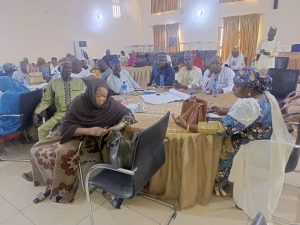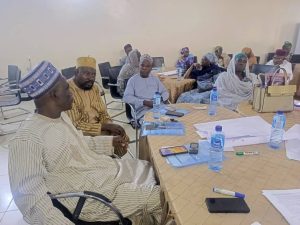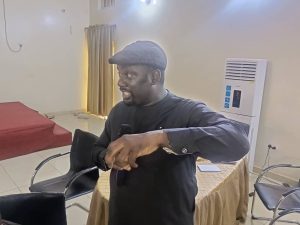
NIGER STATE GOVERNOR
The Niger State government is working towards redesigning the community health workforce programme in conjunction with Clinton health access initiative for partnering the Niger State Ministry of primary Health Care. By ibrahim Salihu.
The Director of the Ministry of Primary health care, Dr, Jinadu Inuwa made known in Haske Luxury hotel Minna during the 2 days Stakeholders consultative workshop for development of guidelines for development and redeployment of primary health care workers organised by Clinton health access initiative incolaboration with Niger StatePrimary health care in Minna.
Primary health care (PHC) is targeted to ensure the highest possible level of health and well-being and their equitable distribution by concentrating on the public needs for a sustainable healthy life without any financial burden on patients.
It is also explained how to give special preference to women, families, and rural communities on a priority basis. The most impressive part of this chapter is the role of PHC in handling the less privileged, which is still beyond perfect control.
While Nigerian is facing the public health “double burden” of both communicable and chronic diseases. Which have to combat increased of chronic disease prevalence, physical activity promotion efforts are necessary.
To this end, the Niger State Ministry of Primary Health Care in collaboration with Clinton health initiative has come together to organized two days workshops on shakeholders alignment with a shared understanding of the need for operational guidelines for development and redeployment of primary health care workers with the theme: consultative work shop for the development of guidelines for development and redeployment of primary health care workers.
The Director planing and research stastistic Ministry primary health care and Nasir Umar program officer clinton health access initiative noted that guideline implementation was influenced by leadership engagement at multiple levels, relative advantage, and compatibility.
Respondents suggested implementation strategies to resolve barriers, including involving partner organizations and developing an implementation plan.
Participants which were drawn from the twenty five local government areas of the State had positive perceptions of physical activity but expressed concerns over individual abilities which is be taken for necessary action.


